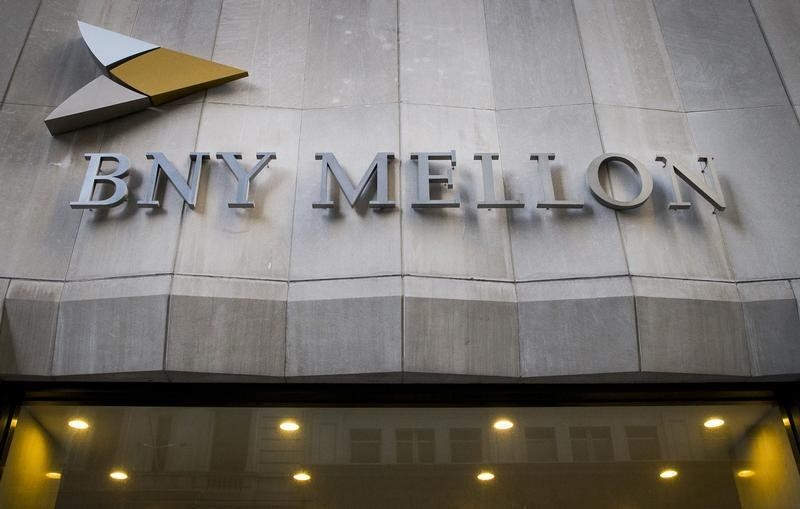By Yoruk Bahceli
(Reuters) – Financial markets are ramping up expectations for interest rate cuts from the European Central Bank, betting it will be the first major central bank to ease policy to buffer a euro zone economy facing recession in contrast to a robust United States.
Last week money market traders anticipated that the ECB, U.S. Federal Reserve and the Bank of England (BoE) would all start easing monetary policy in the second half of 2024 as inflation eases and recent interest rate hikes slow economic growth.
Yet that changed after data on Tuesday showed euro zone inflation dropped more than expected to its lowest in over two years in October, while the economy shrank during the third quarter, raising the risk of a year-end recession.
With investors confident that big central banks are likely done raising rates, focus has switched to when rate cuts will start.
Traders now price in over an 80% chance of a 25 basis-points (bps) ECB cut by April, which had been fully priced for July last week.
They also expect an additional cut next year, now pricing in more than a 50% chance of four, 25 bps cuts by end-2024 that would lower the key deposit rate to 3%.
“The European economy clearly is weakening and weakening quite sharply,” said BNY Mellon (NYSE:) Investment Management’s chief economist Shamik Dhar.
“There are more reasons to believe rates have peaked in Europe than in the U.S. and the UK,” he added. “That’s the view markets are coming to as well.”
In Britain, where the BoE held rates steady on Thursday and ruled out rate cuts any time soon, traders have also ratcheted up bets for easing.
They now expect two cuts in 2024. But facing more stubborn inflation, the BoE is expected to move slower than peers.
US RESILIENCE
In contrast to the euro zone, the U.S. economy continues to defy recession warnings, growing almost 5% in the third quarter.
Bets on Fed cuts have also risen with traders on Friday pricing in a high chance of four rate cuts next year, likely starting in May, following weaker-than-expected jobs data. But they still see at least one less cut than they expected in late July.
The diverging moves reflect the reckoning with higher U.S. rates for longer, which in part explains the recent global bond market rout.
ECB President Christine Lagarde acknowledged last week as the bank paused hikes for the first time since July 2022 that surging U.S. Treasury yields had spilled over, tightening euro area financing conditions.
INVESTORS CAUTIOUS, HAVING BEEN BURNT
But having been wrong-footed time and again by hawkish central banks, some investors warn markets are getting ahead of themselves, risking a fresh bond sell-off.
Hopes that global policy tightening is over have pushed bond yields down from multi-year highs. In the euro zone, Italian bond yields were set on Friday for their biggest weekly fall since June.
Piet Christiansen, chief analyst at Danske Bank, said the expectations for ECB rate cuts now reflected a “doom and gloom” scenario.
“It would be a complete collapse of the European economy that should justify this.”
Lagarde said last week it was premature to discuss rate cuts and hawkish policymakers have called bets on cuts in the first half of 2024 “entirely misplaced”.
The ECB emphasizes wage growth remains strong, while services inflation remains sticky. The Hamas-Israel war also poses a bigger risk to the euro zone, heavily dependent on energy imports, leaving it more vulnerable to higher oil prices.
“We’re underweight European rates on a cross-market basis. That’s because we still think the market is pricing too much ECB easing for next year,” said Goldman Sachs Asset Management strategist Gurpreet Gill. She expects a first rate cut next September.
Others said rising rate-cut expectations were a warning to the ECB, which they said has raised rates too far to respond to inflation largely driven by energy prices, moving aggressively to follow a Fed that has responded to inflation driven by domestic demand.
“I don’t think that Europe can live with the level of interest rates that we have, so (the ECB) have gone too far. Hopefully they correct back quite quickly,” said Dario Perkins, managing director, global macro at TS Lombard. He added the ECB would need to cut rates at least as much as traders expect next year.
Read the full article here



